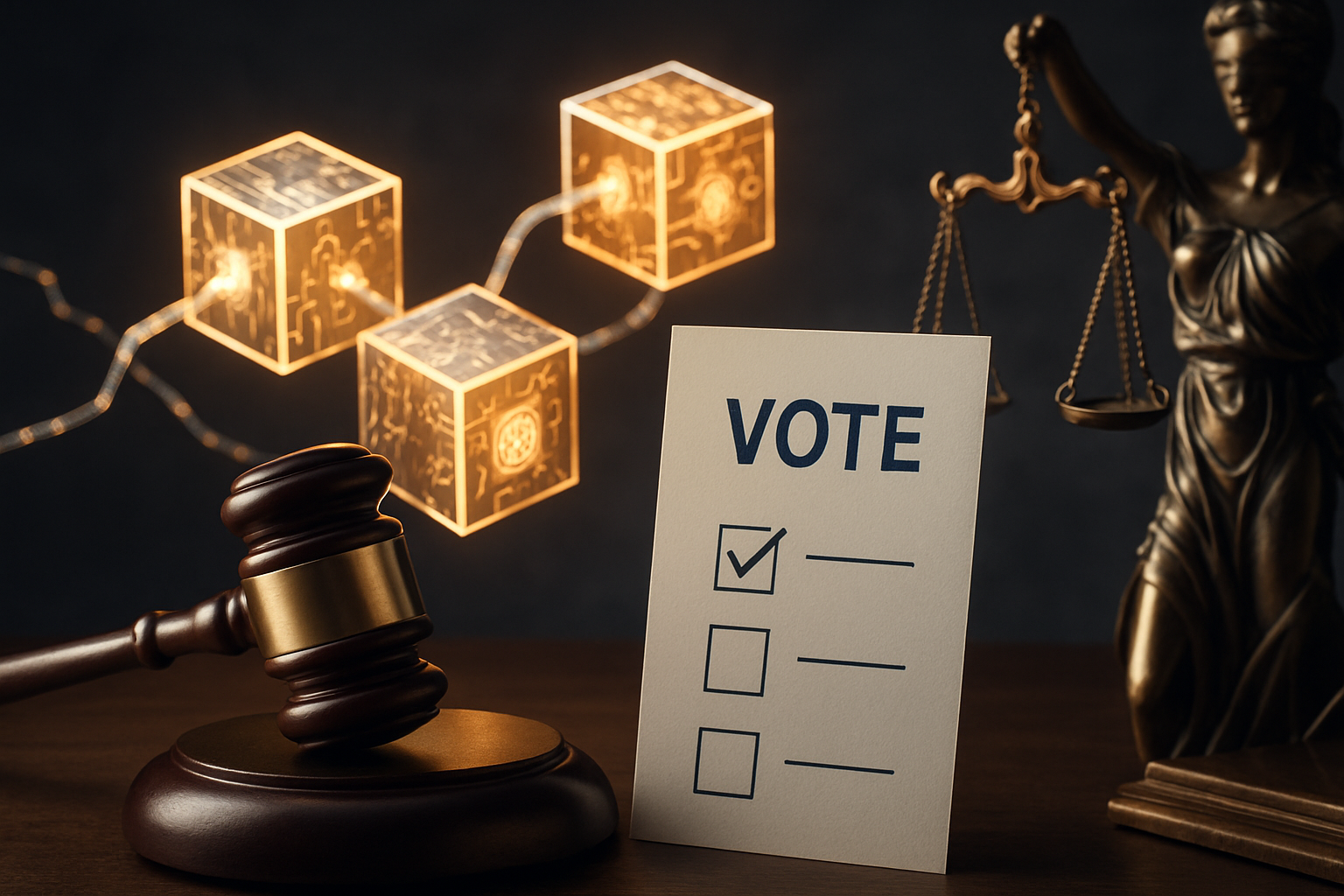Legal Implications of Blockchain in Voting Systems
Introduction: The intersection of blockchain technology and voting systems has sparked a heated debate in legal and governmental circles. This innovative approach promises enhanced security and transparency but raises complex legal questions. As nations explore digital voting solutions, understanding the legal landscape surrounding blockchain-based voting becomes crucial for policymakers and citizens alike.

Constitutional Considerations
The adoption of blockchain voting systems raises significant constitutional questions, particularly regarding the right to vote and equal protection under the law. Legal experts argue that the implementation of such systems must not inadvertently disenfranchise certain groups of voters, such as those without access to technology or the elderly. Courts may need to grapple with whether blockchain voting meets the constitutional standards of accessibility and non-discrimination in electoral processes.
Data Protection and Privacy Laws
Blockchain voting systems inevitably involve the collection and storage of voter data, triggering concerns about compliance with data protection and privacy laws. In jurisdictions with strict data privacy regulations, such as the European Union’s General Data Protection Regulation (GDPR), the immutable nature of blockchain could pose challenges. Legal frameworks may need to be adapted to address the tension between the right to be forgotten and the permanence of blockchain records.
Electoral Integrity and Cybersecurity Legislation
As blockchain voting systems become more prevalent, legislators may need to update existing electoral integrity and cybersecurity laws. This could include provisions for auditing blockchain-based elections, establishing standards for system security, and defining protocols for handling potential breaches or system failures. The legal framework must evolve to ensure that blockchain voting systems are held to the same rigorous standards as traditional voting methods.
International Law and Cross-Border Voting
The potential for blockchain to facilitate remote voting across borders raises intriguing questions in international law. Issues of jurisdiction, sovereignty, and the recognition of election results could become more complex. Legal scholars are exploring how existing international agreements on electoral processes might apply to blockchain voting and whether new treaties or conventions may be necessary to address the unique challenges posed by this technology.
Regulatory Oversight and Standardization
The implementation of blockchain voting systems will likely require the establishment of new regulatory bodies or the expansion of existing ones’ mandates. These entities would be responsible for setting standards, certifying systems, and ensuring compliance with legal requirements. The development of a comprehensive regulatory framework for blockchain voting could draw inspiration from existing regulations in areas such as electronic banking and digital signatures.
Legal Challenges and Court Precedents
As blockchain voting systems are deployed, legal challenges are inevitable. Courts will play a crucial role in interpreting how existing laws apply to this new technology and in setting precedents that will shape future legislation. Early court decisions on the constitutionality and legality of blockchain voting could have far-reaching implications for its adoption and implementation across jurisdictions.
Conclusion
The integration of blockchain technology into voting systems represents a significant legal frontier. As governments and election officials explore this innovative approach, the legal community must grapple with a host of complex issues. From constitutional considerations to data protection, cybersecurity, and international law, the legal implications of blockchain voting are vast and multifaceted. As this technology continues to evolve, so too must the legal frameworks that govern its use in one of democracy’s most fundamental processes. The coming years will likely see intense legal debate and landmark decisions that will shape the future of electoral systems worldwide.






